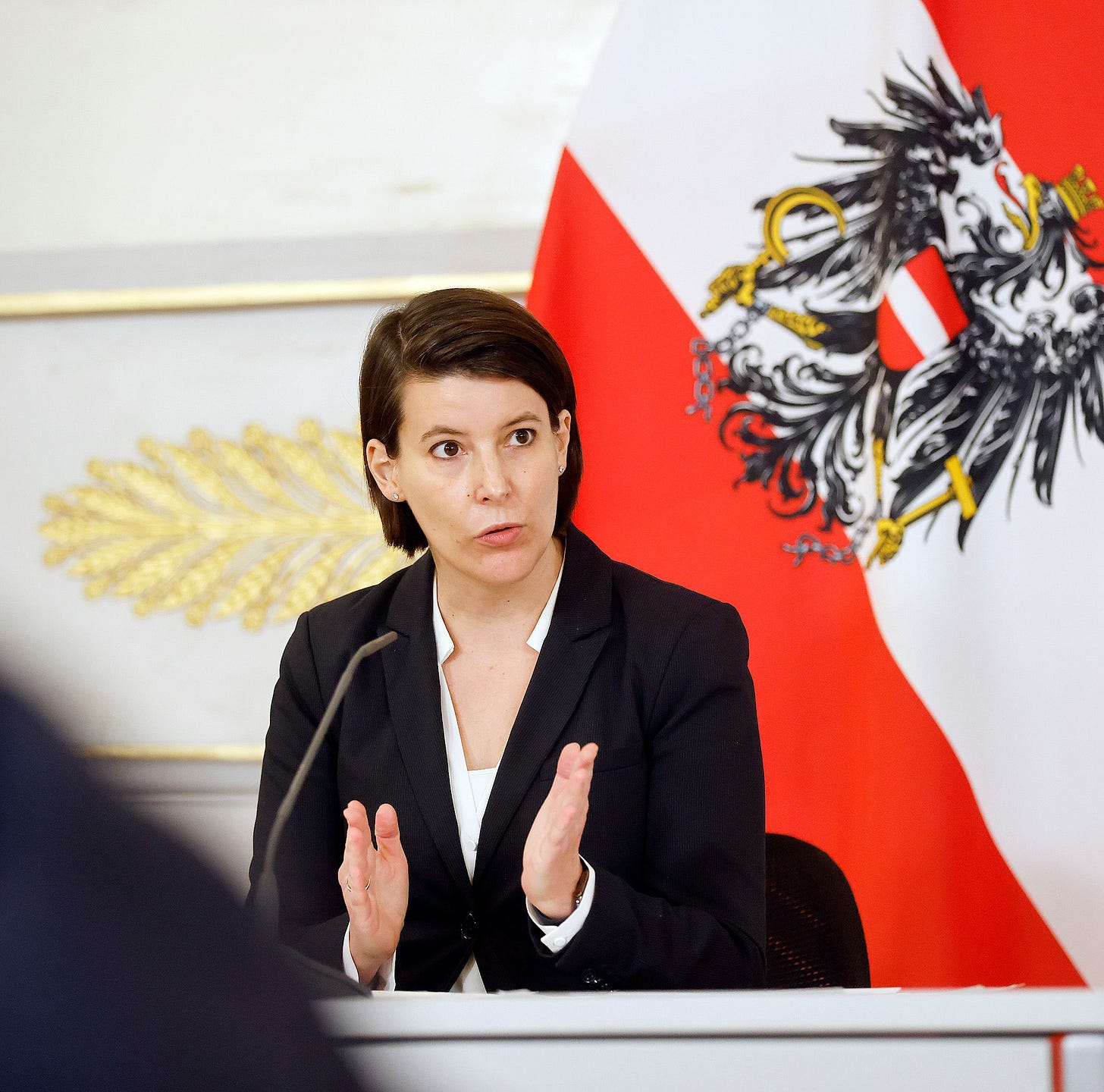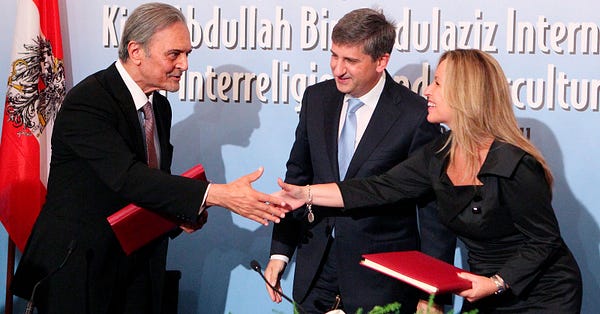Surrender
In Austria, the word of the hour is "Durchseuchung": the uncontrolled spread of the omicron variant through the general population

Servus!
The Omicron wave has begun. After a relatively quiet holiday period during which case numbers, following November and December’s fourth national lockdown, remained low, new infections are on the up once more. On December 27, Austria recorded 2,610 new COVID-19 cases, on January 3 6,003, and on January 10 11,288. Since Christmas Day, the seven-day incidence rate per 100,000 people shot up from 166.2 to 761.9. In districts thick with ski resorts like Kitzbühel (3,517.5) in Tyrol and Sankt Johann im Pongau (3,432.8) in Salzburg, that rate is far, far higher. In Vienna, Omicron is now the only game in town and case numbers are at their highest levels since the beginning of the pandemic.
As the experiences of countries like South Africa, the United Kingdom, and France have shown, the Omicron variant is so infectious that, once it arrived in Austria in early-to-mid December, another wave of the virus was a foregone conclusion. Particular circumstances—the end of the fourth national lockdown, the re-opening of restaurants and cultural venues, the holiday season, the cold weather, and the start of winter tourism—certainly helped kickstart that wave as similar conditions did others. The re-opening of schools following the Christmas break, which took place Monday, and people going back into the office after the holidays (in spite of the recommendation to work from home) will likely speed things up further.
Last week, the country’s new coronavirus crisis management taskforce, GECKO, met to discuss how best to respond to Omicron. Rather than institute a fifth national lockdown as many had feared, the government elected to tinker with existing coronavirus countermeasures. Chancellor Karl Nehammer and health minister Wolfgang Mückstein announced an expansion of the existing FFP2 mask mandate, which now covers outdoor settings where it isn’t possible to maintain a safe distance from others. Shops are now required to check customers’ vaccine certificates either by the entrance or at the cash register to ensure compliance with the 2G rule1 .
Thank you for subscribing to the Vienna Briefing. If you know someone who might be interested in reading this newsletter, consider sharing it with them today.
The government has instituted these measures knowing they will not reduce case numbers. As I say, the fifth wave is already underway and nothing short of another lockdown will halt it in its tracks. Rather, by changing the rules concerning quarantine and who constitutes a ‘contact,’ for example, the government has priortized protecting essential services like schools and hospitals by looking to keep as many people on the job as possible. Now that people in receipt of their booster jabs are freed of the burden of self-isolation, provided that person continues to test negative, a teacher or firefighter can theoretically stay in work even after contact with an infectious individual.
It’s a paradigm shift, as Mückstein acknowledged last week. The word of the hour is Durchseuchung, the uncontrolled spread of the virus through the general population, almost 73 percent of which has been fully vaccinated. “The word Durchseuchung has negative connotations. It’s a term that causes fear,” GECKO chair and Austria’s Chief Medical Officer Katharina Reich said in a radio interview. “But it’s going to happen. That’s the point. We’re not saying it should. We’re saying it will. [The Omicron variant] is so infectious, there’s no getting around it.” Faced with Omicron, the government has adopted a new posture towards COVID-19: surrender.
Whether the new Durchseuchung policy will hold—or whether case numbers will get so high that, as in November, the government will have no choice but to backtrack and enforce another lockdown in order to stop ICUs from overflowing—will only become clear over the next two to three weeks. And then there’s the question of whether one can characterize Durchseuchung as a policy at all, given how little we know about the longterm consequences of COVID-19, in particular ‘Long COVID’ as a chronic illness. In her latest column for Profil, Eva Linsinger accused the government of “flying blind” into the virus. A crash, she believes, awaits.
Bis bald!


In March of last year, the King Abdullah bin Abdulaziz International Centre for Interreligious and Intercultural Dialogue (KAICIID) quietly announced its intention to close its Vienna headquarters. My most-recent article for New Lines looks at the history of KAICIID and how the center became the victim of a shifting political climate in Austria, an unusual constellation of parties and pressure groups—including the far right—and the Saudi government’s own human rights abuses.
No Date for Mandate
Austria will not be able to implement its nationwide vaccine mandate until April 1, according to the boss of ELGA, the firm responsible for running the country’s electronic vaccine certificate system. The government had planned to bring the mandate into force in February.
Chancellor Tests Positive
Chancellor Karl Nehammer has tested positive for COVID-19. Nehammer has received his booster vaccine and is presently asymptomatic. He is currently in quarantine and working from home.
Kurz Works
Former chancellor Sebastian Kurz has landed his first gig since leaving frontline politics: global strategist for Thiel Capital, founded by the Trump-backing Silicon Valley billionaire Peter Thiel. Kurz is also set to appointed co-chair of the European Council on Tolerance and Reconciliation.
2G, meaning only those who have been vaccinated against or have recovered from COVID-19 can enter most retail, gastronomic, cultural, or sporting venues.



